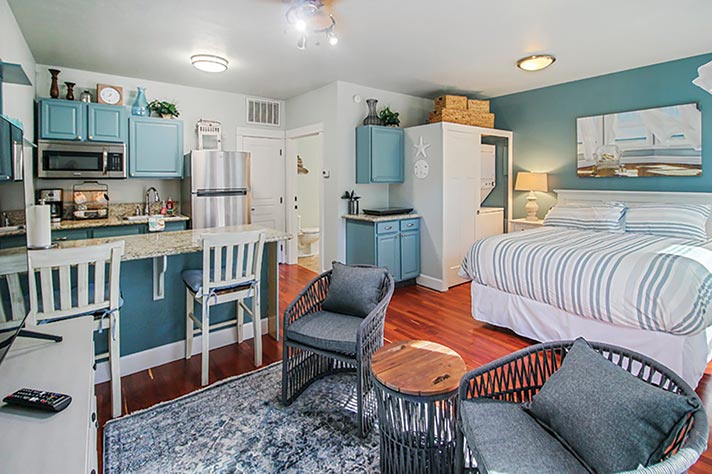Let’s Talk Real Estate – February 2023
The short-term rental industry (STR) has brought a new experience for guests. No longer confined to staying at a motel or hotel, guests can now choose to stay in a chateau, cabin, cottage, treehouse, house, barn, boat, tiny home, or yurt. They can choose to be on a beach, lake, vineyard, riverbank, mountain top, or to have a private pool, hot tub, chef’s kitchen—and at locations only a private property can provide.
So, it’s understandable that expectations can be high for those who are contemplating investing in STR’s, as they see the industry reporting double-digit yearly growth. But recently, STR owners across the U.S. have taken to social media, Facebook, Twitter to Reddit, to complain that their bookings have been slowing down and expressing their frustration with #Airbnbust, a hashtag that went viral last fall.
Owners have noticed a significant drop in bookings and nightly pricing starting late last spring and data from AirDNA, a short-term rental analytics firm, shed some light on what’s going on. As of October 2022, the number of future nights booked, which is a real time indicator of the health of the STR industry, was up 15.8% year over year. However, while the number of bookings has risen, there has also been a sharp increase in supply of available STR listings. For the U.S., the inventory of listings is up 23.3% in October 2022 compared with October 2021. The net result has been an average of 7% fewer nights booked per listing.
There are still opportunities in the short-term rental industry, but the industry is maturing and is becoming complex and competitive. With less promise of easy money, an owner needs to master three key factors: reach, conversion, and experience.
Here are some tips to improve:
Reach: How many guests see a listing—Reach can be driven by both the number of websites your listing appears on and where you appear on each website. While airbnb has become a “verb” for nightly rentals its only one of many popular booking sites. Other major sites include, VRBO, Booking.com, Expedia, HomeAway, TripAdvisor, Google and more. To increase your reach, you need to figure out which subset of booking websites works for your property. In addition, how many guests see your listing on each website, is driven by marketplace algorithms that either put your listing at the top of search results or the bottom. This is important, just like with Google searches, most guests never make it past the first page. Do your research and you will find most booking sites publish what’s needed to get your listing at the top of a search page, then do the work.
Conversion: How many lookers turn into bookers—Conversion is influenced by the quality and competitiveness of your listing. Professional photographs, nightly rates and minimum nights required determine how you compete against other homes of a similar size, in your similar location, and with similar amenities. Your response time to guest inquiries is also critical and plays a big part in your conversion percentage.
Guest Experience: How guests feel about their stay is crucial—because it leads to reviews, and review scores, which have a direct impact on a listing’s reach and can ultimately determine the success or failure of your STR. You should think of yourself as a micro-hotelier and try to carve out a niche for your STR to operate in, servicing your guests better than your competition. Consider what kind of guest you are seeking and think about how to cater to their needs and raise the bar for their stay. What amenities do they like—hot tub, pet friendly, coffee, tea, bottle of wine, washer/dryer, kitchenette, automated check-in? Providing 24/7 communications is crucial and no matter what, make sure the property is ready for arrival and, most important, meets or exceeds the expectations set in the listing.
Guests are booking short-term rentals at a higher pace than ever before, but a sharp rise in supply has meant less bookings for each short-term rental. No longer the source of easy money, the STR industry is maturing and those who thrive will have to master their reach, conversion, and guest experience.
